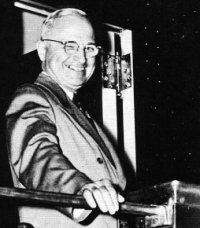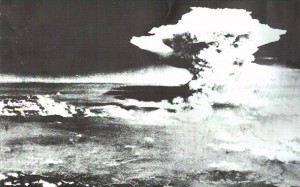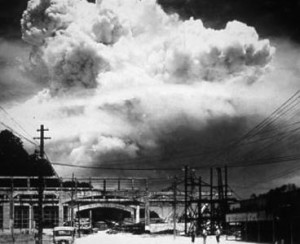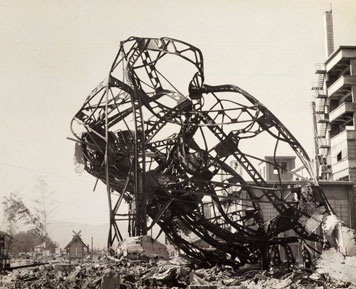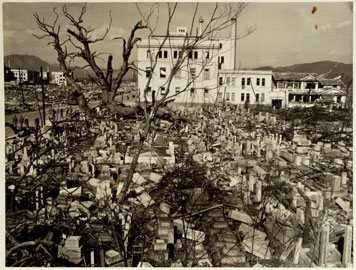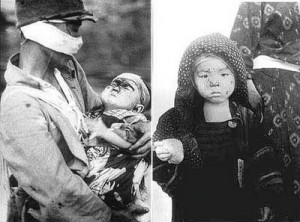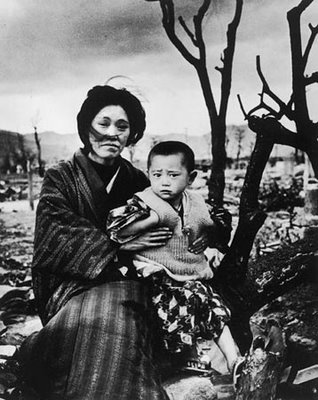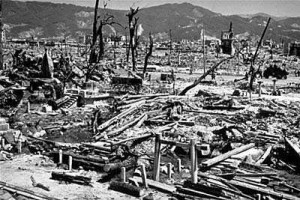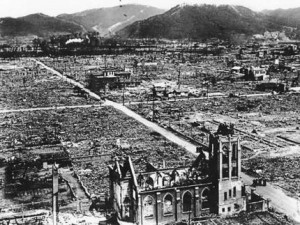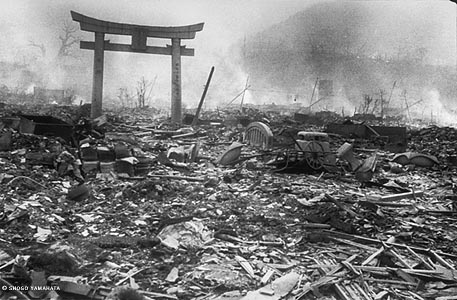From Anthony Gregory (2012-04-26), Only One Way to End the Indecencies of War, in the Huffington Post:
The only solution to this is to stop the indecencies that are being recorded for the world to see. Blaming the publishers of these photos is entirely the wrong approach. It puts the chill on free speech whenever the government insists upon secrecy. Let’s address the underlying issue and stop blaming the messenger.
To this point, we might focus on Panetta’s most telling comment: This is war. I know that war is ugly and it’s violent…
Many would see this as a throwaway line, meant to lend some context to the obscenities, yet it dismisses the true core of the problem. Wars, particularly modern wars, necessarily entail indecencies and atrocities — yet some would have us believe that a few bad apples
are all that is tainting an otherwise justifiable and moral war. Surely militarists and the administration encourage this view, but so do some opponents of the administration who imply the war could be waged much better under different leadership. Similarly, liberal critics of Bush sometimes implied that a more capable executive, like Kerry or Obama, would wage war without excessive intervention many Democrats often claimed to characterize Bush’s foreign policy.
NBC’s Col. Jack Jacobs argues that the problem is a lack of sound leadership, but we might be forgiven for wondering which major war in memory — or even in the last century — was devoid of such indecency on the part of soldiers. Where has there ever been a war whose leadership
guaranteed the professional behavior
whose decline Jacobs laments?
. . . In any event, so long as we blanch at the site of desecrated body parts or soldiers urinating on corpses while we tolerate perpetual war that makes such actions (and even much worse) inevitable, we are totally missing the point. The attempt to ascribe this indecency to a handful of soldiers or poor leadership is a distraction from the full indecency of war itself, much like the Abu Ghraib photos were used to deflect attention from questions of U.S. detention policy.
As of August 2011, Obama’s drone wars killed an estimated 168 children in Pakistan. That is a consequence of U.S. policy. In the last 20 years of U.S. operations in Iraq, Iraqi citizens have suffered under exponential loss of innocent civilians. Much of this misery results from the U.S.-UN sanctions implemented and enforced by the Bush and Clinton administrations. Both administrations have fallen short of accomplishing their missions to prop up a thoroughly backwards regime, defeat an al Qaeda network that is hardly there anymore, and fight an unwinnable war on opium. Obama’s considerable escalation of the war efforts has not yielded greater protection of the Afghan people, who suffered a record number of civilian deaths last year — the fifth straight year that casualties rose.
The Obama administration asks that we look beyond the scandalous photos at the big picture
of the war in Afghanistan. Supposedly, this means we should focus on the progress that top officials claim to have made. Yet the situation is as unstable as ever. U.S. officials are negotiating with the Afghans to maintain a serious presence there for more than another decade, as though this prolonged engagement will finally bring about whatever the administration hopes to accomplish there.
Eventually, the U.S. military will withdraw from Afghanistan, and perhaps from its imperial presence throughout the world. Only then will we rid of the indecencies intrinsic to war.
–Anthony Gregory (2012)
From Marja Erwin (2012-04-25), The persecution of Breanna Manning and the incoherence of American Centrist ideology:
American Centrists, Fascists, and other authoritarians are calling for the murder of Breanna Manning, preferably without trial, and of many of her supporters. . . .
The American government claims legitimacy based on the supposed consent of the governed.
But consent requires equality. As long as the government keeps secrets from the governed and has power over the governed, it does not have consent, and does not have legitimacy.
The American Centrists grant the government legitimacy based on the supposed consent of the governed.
Then they grant the American government unlimited secrecy and unlimited power because of its legitimacy,
though they may criticize other governments because of their lack of legitimacy.
The American Centrists insist, in particular, that the American government has an inherent right to keep secrets and the people, not the American people, and not the whole world’s people, could possibly have a right to know what the American government is up to. The American Centrists have detached legitimacy
from its supposed grounding in consent and now use legitimacy
to support secrecy which makes consent impossible. They have liquified the ground they were standing on and are now sinking into.
So they attack Breanna Manning for sharing the secrets of the war machine. If she did what she is accused of, she is one of the outstanding heroes of our time.
But let’s get to the accusations of treason:
First off, there’s the legal definition, which requires the claim that the public is an enemy.
Second, there’s the political definition, that of acting against a legitimate government. [I don’t believe there are any]. But if the government keeps secrets from the public, it cannot have consent, and therefore cannot have legitimacy, and it is incoherent to claim treason
when someone reveals its secrets to the public.
Third, there is the religious definition, which refers to oath-breaking. Warrior bands dedicated to war gods such as Wo?@c3;be;ins/Woden/Odin or Mars/Mamers required oaths as part of their initiation. Each warrior would declare absolute loyalty to the other warriors. This helped separate the warriors from the civilian society and helped make the warrior bands into effective mercenaries, plunderers, and slave-raiders. The practice of oath-keeping has, I think, done little good and monstrous harm throughout history.
And when I see all these knee-jerk accusations of treason and calls for murder, I remember how, because of my opposition to war, I’ve been called anti-American, attacked, severely beaten, and I’ve gotten death threats. There is a very deep pit of hatred in this land.
–Marja Erwin (2012)
All of which is important. And all of which has something, I think, to do with this. From Randolph Bourne (September 1917), A War Diary, in Seven Arts:
Thus the liberals
who made our war their own preserved their pragmatism. But events have shown how fearfully they imperilled their intuition and how untameable an inexorable really is. For those of us who knew a real inexorable when we saw one, and had learned from watching war what follows the loosing of a war-technique, foresaw how quickly aims and purposes would be forgotten, and how flimsy would be any liberal control of events. It is only we now who can appreciate The New Republic–the organ of applied pragmatic realism–when it complains that the League of Peace (which we entered the war to guarantee) is more remote than it was eight months ago; or that our State Department has no diplomatic policy (though it was to realize the high aims of the President’s speeches that the intellectuals willed America’s participation); or that we are subordinating the political management of the war to real or supposed military advantages, (though militarism in the liberal mind had no justification except as a tool for advanced social ends). If, after all the idealism and creative intelligence that were shed upon America’s taking up of arms, our State Department has no policy, we are like brave passengers who have set out for the Isles of the Blest only to find that the first mate has gone insane and jumped overboard, the rudder has come loose and dropped to the bottom of the sea, and the captain and pilot are lying dead drunk under the wheel. The stokers and engineers however, are still merrily forcing the speed up to twenty knots an hour and the passengers are presumably getting the pleasure of the ride.
The penalty the realist pays for accepting war is to see disappear one by one the justifications for accepting it. He[] must either become a genuine Realpolitiker and brazen it through, or else he must feel sorry for his intuition and be regretful that he willed the war. But so easy is forgetting and so slow the change of events that he is more likely to ignore the collapse of his case. If he finds that his government is relinquishing the crucial moves of that strategy for which he was willing to use the technique of war, he is likely to move easily to the ground that it will all come out in the end the same anyway. He soon becomes satisfied with tacitly ratifying whatever happens, or at least straining to find the grain of unplausible hope that may be latent in the situation. . . . Professor Dewey has become impatient at the merely good and merely conscientious objectors to war who do not attach their conscience and intelligence to forces moving in another direction. But in wartime there are literally no valid forces moving in another direction. War determines its own end–victory, and government crushes out automatically all forces that deflect, or threaten to deflect, energy from the path of organization to that end.
All governments will act in this way, the most democratic as well as the most autocratic. It is only liberal
naïveté that is shocked at arbitrary coercion and suppression. Willing war means willing all the evils that are organically bound up with it. A good many people still seem to believe in a peculiar kind of democratic and antiseptic war. The pacifists opposed the war because they knew this was an illusion, and because of the myriad hurts they knew war would do the promise of democracy at home. For once the babes and sucklings seem to have been wiser than the children of light.
–Randolph Bourne (1917)
And with this. From Anonymous (1756), A Vindication of Natural Society: or, a View of the Miseries and Evils Arising to Mankind from every Species of Artificial Society:
To prove, that these Sort of policed Societies are a Violation offered to Nature, and a Constraint upon the human Mind, it needs only to look upon the sanguinary Measures, and Instruments of Violence which are every where used to support them. Let us take a Review of the Dungeons, Whips, Chains, Racks, Gibbets, with which every Society is abundantly stored, by which hundreds of Victims are annually offered up to support a dozen or two in Pride and Madness, and Millions in an abject Servitude, and Dependence. There was a Time, when I looked with a reverential Awe on these Mysteries of Policy; but Age, Experience, and Philosophy have rent the Veil; and I view this Sanctum Sanctorum, at least, without any enthusiastick Admiration. I acknowledge indeed, the Necessity of such a Proceeding in such Institutions; but I must have a very mean Opinion of Institutions where such Proceedings are necessary. . . . In vain you tell me that Artificial Government is good, but that I fall out only with the Abuse. The Thing! the Thing itself is the Abuse!
–Anonymous (1756)
